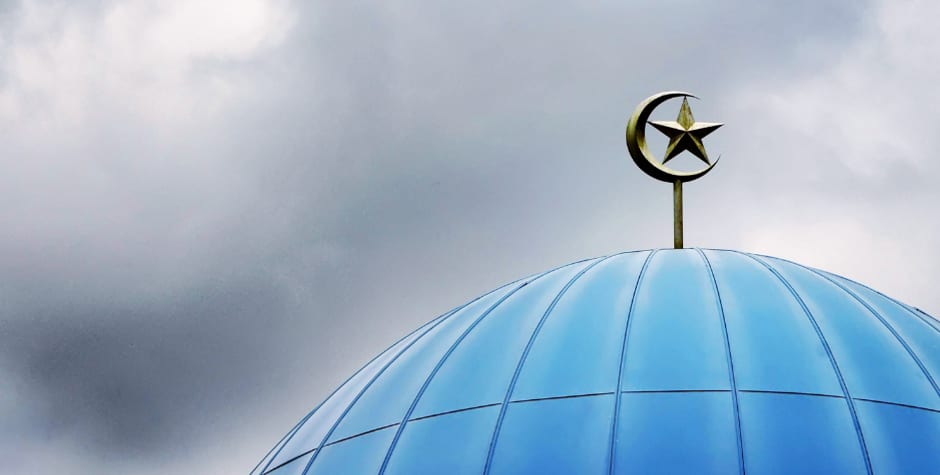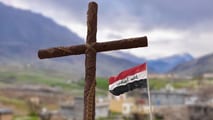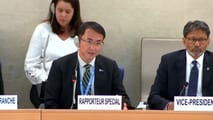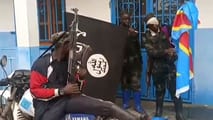

Entryism of the Muslim Brotherhood: When Will They Be Banned in France?
Entryism of the Muslim Brotherhood
Since the publication on May 21, 2025, of the report on the strategy of entryism of the Muslim Brotherhood in France, part of the political class has been vying to demonstrate its toughness towards the movement. Nearly nine out of ten French citizens are in favor of banning it. However, the issue is more complex: the Brotherhood, following its low-profile influence strategy, does not have any official political or religious structure claiming affiliation. It is therefore the Brotherhood’s ideology itself—and the misleading accusations of “Islamophobia”—that must be challenged in order to dismantle its influence in France.
The extent of the Muslim Brotherhood’s grip on French society has now been officially acknowledged. On May 21, 2025, Minister of the Interior Bruno Retailleau presented a report titled "Muslim Brotherhood and Political Islam in France" during a meeting of the Defense Council. The report, commissioned in April 2024 by his predecessor Gérald Darmanin, had remained unaddressed on President Macron’s desk since the autumn. While it brings no fundamentally new revelations, its publication marks an institutional recognition of the Brotherhood threat and has drawn widespread media attention. The United Kingdom had already published a similar report in December 2015, and prominent scholars such as Florence Bergeaud-Blackler have risked both their careers and personal safety to study the issue in depth.
Given the “seriousness of the findings” presented in the report, the President has asked the government to formulate “new proposals” ahead of another Council meeting announced for “early June.” As early as May 22, 2025, Emmanuel Macron instructed the French Ministry of Foreign Affairs to send letters to French embassies in several Muslim-majority countries to reassure them and affirm that France is not “Islamophobic.” On May 26, 2025, during a state visit to Vietnam, he warned against the risk of overgeneralization, stating that seeing Islamism everywhere “can make one conspiratorial or paranoid.” While Bruno Retailleau, recently elected president of the Republican Party, makes his voice heard on the subject, Emmanuel Macron seeks to reclaim the issue and link it to his 2020 speech in Les Mureaux on separatism, which led to the 2021 Law on the Principles and Values of the Republic.
"Turning the Whole of French Society Toward Sharia Law"
The report identifies 139 places of worship affiliated with the Musulmans de France federation (formerly UOIF), considered the French branch of the Muslim Brotherhood. In addition, 68 more places of worship are deemed close to this federation, spread across 55 departments. Together, these sites represent approximately 7% of the 2,800 mosques listed in France, with an estimated 91,000 worshippers attending Friday prayers weekly. While this figure may seem modest—considering that attending a mosque aligned with the movement doesn’t necessarily imply formal membership, and that France’s Muslim population numbers around 7.5 million—the real issue is not quantitative. The core concern lies in the Brotherhood’s proselytizing efforts and its growing influence.
According to the Minister of the Interior, this report proves that the group aims to “turn the whole of French society toward sharia law.” The authors—diplomat François Gouyette (former French ambassador to the United Arab Emirates, Libya, Tunisia, Saudi Arabia, and Algeria) and Aube Prefect Pascal Courtade—describe Brotherhood ideology as “a threat that spreads insidiously and progressively,” undermining national cohesion through a discreet and methodical strategy of entryism. Though they do not openly advocate violence, their influence
spreads gradually and subversively, especially at the local level. The 2026 municipal elections are therefore being closely monitored. While communitarian electoral lists are not prohibited under French law, the Muslim Brotherhood could exploit community-based clientelism to integrate candidates into mainstream parties and deliver the Muslim vote in exchange for political concessions aligned with their Islamist agenda.
"The Inferiorization of Women (but the Valorization of the Veiled Woman)"
The report summarizes the Brotherhood’s ideology through four core pillars. First, the “supremacy of Quranic law within an integralist framework” means that “no aspect of individual or collective life is considered outside the scope of religious injunctions.” Second, a “variable-geometry conception of otherness, particularly religious” explains the participation of Brotherhood-affiliated actors in interfaith dialogue as a “tactical option in their quest for legitimacy with public authorities.” The report notes that “any sincere dialogue is fundamentally hindered by the issue of apostasy in Islam, which forces the hundreds of Muslims baptized each year (350 in 2024) to conceal their conversion to Christianity”—an observation already made in 2021 by the ECLJ in its report on the persecution of ex-Muslim Christians in France and Europe.
The third pillar, “the inferiorization of women (but the valorization of the veiled woman),” “promotes gender segregation as a norm and instrumentalizes the wearing of the veil”, placing “the veiled woman at the heart of the Muslim culturalist expansion strategy, in opposition to the West”. Finally, “the Israeli-Palestinian conflict acts as a catalyst for the Brotherhood’s longstanding anti-Zionism, which increasingly mutates into antisemitism within the movement,” particularly since the Hamas-led attacks of October 7, 2023.
“Secrecy, Quest for Legitimacy, and the Denunciation of ‘Islamophobia’”
The Brotherhood’s implantation strategy is built upon secrecy, the pursuit of public legitimacy, and the denunciation of so-called “Islamophobia” (in quotation marks in the original text). Adhering to a culture of secrecy, the Brotherhood—whose members join after completing a “ten-step initiation process”—relies, according to the report, on a “dual structure: one official, to comply with legal frameworks, and the other covert, centered around a council of elders.” Regarding the issue of double discourse, the report quotes Chakib Benmakhlouf, former president of the Federation of Islamic Organizations in Europe (now the Council of European Muslims), who acknowledges that the European legal environment makes it possible “to present the model of a respectable Muslim who is seen as a positive example to promote Islam—without drawing attention to the fact that we are Islamizing the West.”
The Muslim Brotherhood uses the concept of “Islamophobia” “to discredit measures grounded in the principle of secularism (laïcité), reframing them as instances of ‘state-sponsored racism’ targeting Muslims.” The term has gained traction globally: in 2022, the United Nations General Assembly officially declared March 15 as the “International Day to Combat Islamophobia.” The Council of Europe, however, prefers the terminology of anti-Muslim racism and hatred. In 2021, it condemned the withdrawal by France of its campaign “Freedom is in hijab,” co-funded by the European Union, which promoted the Islamic headscarf. In response to the growing Islamization of France and Europe, the ECLJ continues to advocate for freedom of expression and the right to criticize Islam, standing firmly against the instrumentalization of the term “Islamophobia” and the push for banning blasphemy against Islam.
The Muslim Brotherhood’s Entryism in Schools and Sports
The report identifies 280 associations linked to the Muslim Brotherhood movement, active across many sectors of Muslim daily life in France. This associative entryism is particularly visible in the education sector, with 21 schools identified as being connected to the Brotherhood’s ideological current, enrolling a total of 4,200 students. Five of these institutions operate under a state partnership contract (contrat d'association), three of which have come under scrutiny. A prominent figure in this context is Amar Lasfar, president of Musulmans de France and founder of the Averroès High School in Lille. In 2017, he stated, “We are not part of the Muslim Brotherhood. However, we align with their school of thought.” In December 2023, the French government terminated the school’s contract, citing the teaching of a strict interpretation of Islam contrary to republican values. However, on April 23, 2025, the Lille administrative court overturned this decision. Education Minister Élisabeth Borne has since announced an appeal.
On March 12, 2025, the Lyon administrative court upheld the cancellation of the contract with the Al-Kindi school, resulting in the loss of approximately €1.6 million in public funding per year. On May 21, 2025, following the publication of the national report, Renaud Muselier, president of the Provence-Alpes-Côte d’Azur region, and Martine Vassal, president of the Bouches-du-Rhône department, announced the suspension of public subsidies to the Ibn Khaldoun school in Marseille. Both officials also called on the Minister of Education to suspend the school’s national partnership contract. The report notes that “the Brotherhood’s investment in the education sector is expanding against a backdrop of increasing violations of secular principles in schools, fueled by the activity of online preachers.” Quranic schools, described as “opaque in their operations and not immune to separatist drift,” are also singled out.
In 2020, 127 sports associations were identified as having ties to separatist movements—18 Salafist and 5 Brotherhood-affiliated—representing more than 65,000 members. “Their coaches and directors often adopt a proselytizing attitude, emphasize Arab-Muslim identity, and promote religious practices (collective prayers before games, prayer spaces in locker rooms, frequent religious reminders).” The demand for the right to wear the Islamic headscarf in sports is championed in particular by an informal collective formed in 2020 within the group Alliance Citoyenne, comprising around fifty women collectively known as “Les Hijabeuses.” This group has led several protests and legal actions. In October 2024, the ECLJ intervened as a third party in a case pending before the European Court of Human Rights (F.D. and I.M. v. France).
Decline in the Arab-Muslim World, but Growing Influence in Europe
The Muslim Brotherhood is facing a steady decline in influence across North Africa and the Middle East. Having “a strong social base and well-structured associative and activist networks,” Islamist parties initially rose to power during the Arab Spring—namely in Tunisia (Ennahda), Morocco (Justice and Development Party), and Egypt (Mohammed Morsi). Since then, many regimes have grown increasingly wary of the Brotherhood’s political ambitions and its ties with armed groups such as Hamas. Post-Morsi Egypt, along with Jordan, Saudi Arabia, the United Arab Emirates, and Bahrain, have formally banned the organization. Turkey, while seeking to normalize relations with Egypt, has pragmatically distanced itself without severing ideological ties, and continues to provide crucial logistical and financial support to the Brotherhood’s European branch. Qatar, for its part, maintains relations with Islamist movements such as Hamas, while officially denying direct support for the Muslim Brotherhood. Its strategy appears to be one of preserving regional influence, playing mediator in various conflicts, and avoiding confrontation with its neighbors.
In Europe, the Muslim Brotherhood “has chosen a long-term strategy of influence—or even entryism—backed by an adapted ideological framework,” rather than forming identifiable political parties or engaging directly in electoral politics. The Council of European Muslims (CEM), based in Brussels since 2007, coordinates and implements the Brotherhood’s influence strategy across European countries and institutions. The CEM holds regular meetings in Istanbul, where Turkey provides logistical support through its Directorate of Religious Affairs (Diyanet). One of the Brotherhood’s key instruments is the Forum of European Muslim Youth and Student Organisations (FEMYSO), which is registered in the EU’s Transparency Register. Through FEMYSO and similar platforms, the CEM promotes “a singular vision of religious freedom—one that includes the denunciation of so-called ‘Islamophobia,’ demands for the penalization of blasphemy, and the widespread promotion of halal practices.”
The Urgency of Confronting Brotherhood Ideology in Europe
Despite the image of goodwill that the Muslim Brotherhood seeks to project in Europe, Austria took decisive action in 2021 by banning the public display of Brotherhood symbols under an anti-terrorism law. The country also placed the organization on its blacklist of “extremist groups linked to religion-motivated criminality.” However, a formal ban on the Brotherhood remains difficult to implement due to the absence of any officially identifiable structure. In France, nearly nine out of ten citizens support banning the Muslim Brotherhood, according to a CSA poll for CNews, Europe 1, and the JDD. During a visit to the Hauts-de-Seine prefecture in Nanterre on May 26, 2025, the Minister of the Interior reaffirmed the government’s existing tools for combating radical Islam and called on local authorities to show greater resolve.
In practical terms, it is the ideology that must be addressed in order to dismantle the Brotherhood’s influence. For example, the Collective Against Islamophobia in France was dissolved in 2020 but immediately reemerged in Brussels under the name Collective Against Islamophobia in Europe. Furthermore, accusing critics of Brotherhood ideology of racism or Islamophobia effectively protects a politico-religious agenda that primarily oppresses Muslims themselves. In truth, it is the Muslim Brotherhood that essentializes Muslims and claims to speak on their behalf. This is not about banning Islam, but about resisting the political instrumentalization of the Muslim faith, which poses a direct threat to the foundations of our democracy.













